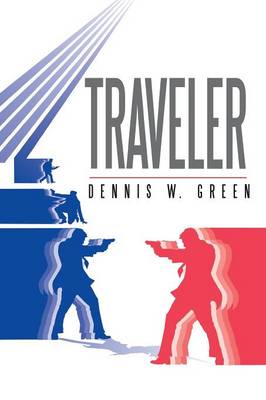
Terri M. LeBlanc
Written on Dec 7, 2013
Well, it is, but it isn't. Green has great skill in laying out a complicated plot in a fashion that intrigues you and keeps you wanting to know what's going to happen next. Even though he introduces several different versions of each of the characters, you can easily follow which version (or versions) you are encountering. Also, the science behind the travel between universes is neatly explained and for someone who isn't a hardcore science fiction geek (and who loves time travel plots, but is just as easily confused by them), I understood it and was able to easily explain it to my husband.*
The only thing I wasn't keen on were the interludes. The Interludes just seemed to pop up out of no where and did not seem to have a connection with the portion of the book I just finished reading. The Burton Tupper Interlude (page 87) was the most jarring to me. I was reading along, really getting into the story, something huge was revealed and BAM! this interlude popped up. It was the season ending cliffhanger of your favorite show and you have to wait all summer for the plot to be resolved. Fortunately, this is a book so I just paged ahead to the next chapter, resolved the cliffhanger and went back to the Tupper Interlude. I think Green was trying to make clear the point that Morgan Foster makes on page 148.
"History is full of evidence of people sensing, and sometimes reaching, other planes of reality. ... There are dozens of cases of people disappearing without a trace, and others who suddenly one day started insisting they remembered things differently that everyone else did."
I'm not sure the interludes were entirely necessary to get the point across, but maybe for a reader who isn't drawn to science fiction and/or time travel-type books, they need that extra boost to understand Trav isn't the only one that this happens to. Despite not being a huge fan of the interludes, I will say that Officer Brian Lowe's interlude (page 231) was my favorite. But I love historical fiction and adored Stephen King's 11/23/63.
Overall, Traveler is a strong first novel. The traveling between parallel universes is neatly explained and the plot draws you in. Mystery lovers and science fiction fans should get a kick out of the novel. Traveler by Dennis W. Green gets a solid thumbs up.
*My husband now uses it as an excuse for not getting things done around the house. "Well, maybe in another parallel universe, the dishes are in the dishwasher being washed right now. Maybe you are just in the wrong universe." Sometimes living with a science fiction geek has a downside.
